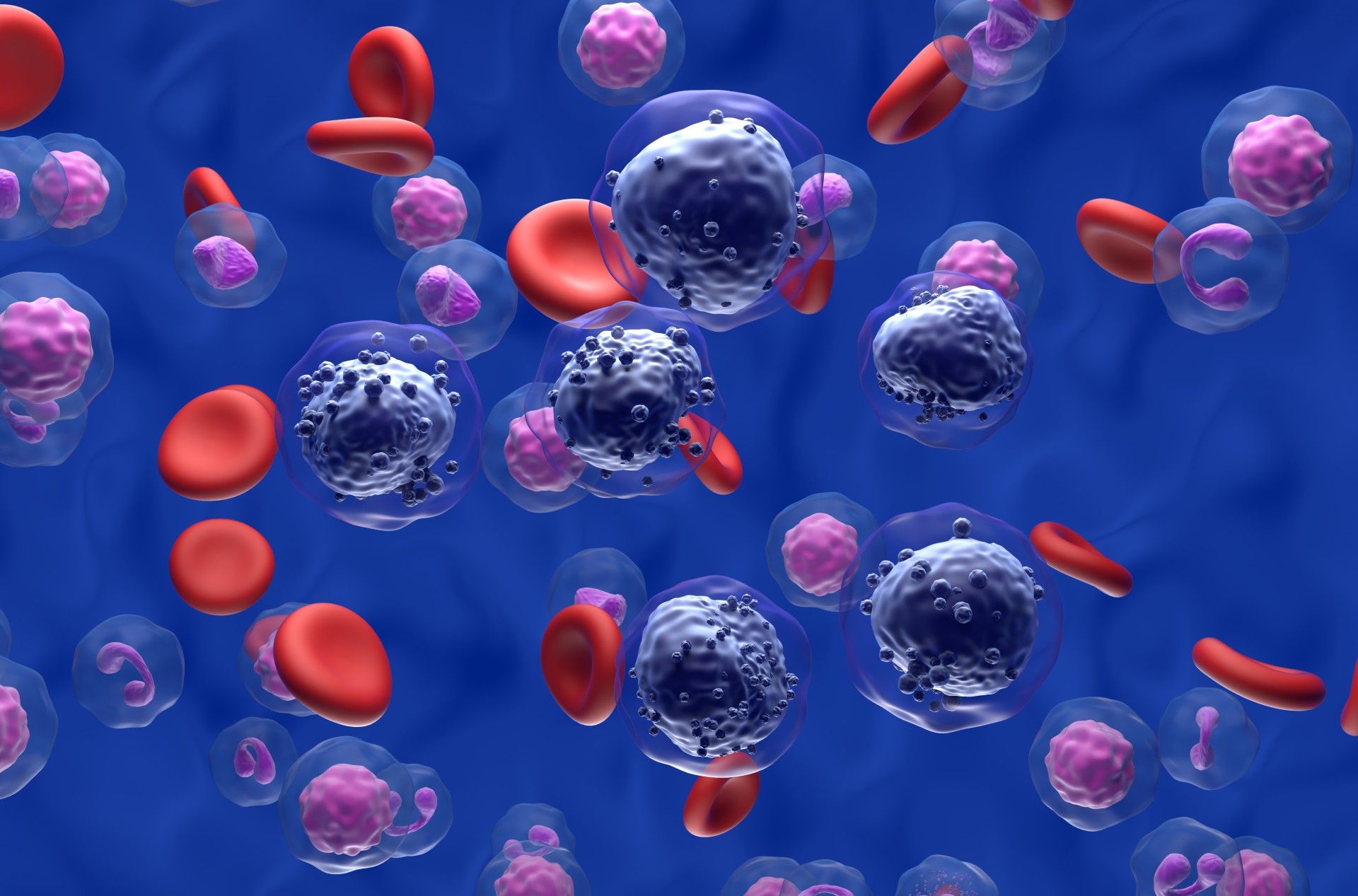- Center on Health Equity & Access
- Clinical
- Health Care Cost
- Health Care Delivery
- Insurance
- Policy
- Technology
- Value-Based Care
Increased Fatigue Associated With Greater Risk of Mortality Among Patients With AML, ALL, MDS
The findings suggest patient-reported outcomes—namely fatigue—may be helpful in identifying patients at a higher risk of death and other adverse outcomes but warrant further research.
Associations between patient-reported outcomes (PROs) and clinical outcomes have been seen in solid-tumor cancers, and research presented at the 2023 American Society of Hematology Annual Meeting and Exposition found that the same might hold true in patients with newly diagnosed acute myeloid leukemia (AML), acute lymphoblastic leukemia (ALL), or myelodysplastic syndrome (MDS).
The findings suggest PROs—namely fatigue—may be helpful in identifying patients at a higher risk of death and other adverse outcomes.
Acute lymphoblastic leukemia cancer cells in blood flow | Image credit: LASZLO - stock.adobe.com

“There is limited data on the real-world application of PROs and their clinical utility in patients with acute leukemias or MDS,” the authors explained. “While the associations of PROs with clinical outcomes, such as overall survival (OS) and acute care utilization, have been established in patients with solid tumors, these same associations are not well known in patients with hematologic malignancies.”
The retrospective cohort study included 56 patients treated at the Abramson Cancer Center at the University of Pennsylvania between November 2018 and February 2022. The median patient age was 63 years (range, 26-79). All patients completed a 14-question baseline PRO survey (the National Cancer Institute's PRO Version of the Common Terminology Criteria for Adverse Events [NCI-CTCAE]) within 30 days of starting therapy for AML, ALL, or MDS. Symptom domains are assessed on a Likert scale from 1 to 5, with lower scores being favorable.
The researchers explored associations between PROs and OS, defined as time from therapy initiation to death; as well as time to acute care use (TAC), defined as time from therapy initiation to first unplanned acute care visit.
The most frequently reported symptom was fatigue (n = 49, 87.5%) and the mean (SD) score in this domain was 2.9 (1.3). The majority of patients (n = 33; 58.9%) reported mild or no symptoms (score < 4) and 28.6% (n = 16) reporting more severe symptoms with scores of 4 or 5. The same trend was seen with anorexia, anxiety, and sadness.
Univariate models did not find fatigue, anorexia, anxiety, or sadness associated with a higher hazard of death, but multivariate analyses adjusting for age, sex, and treatment intensity showed each point increase in fatigue severity to be associated with a 41% increased hazard of death (HR, 1.41; 95% CI, 1.03-1.93). Patients who reported severe fatigue (score ≥4) experienced a 145% increased hazard of death compared with patients whose reported fatigue scores were lower than 4 (HR, 2.45; 95% CI, 1.07-5.61).
Anorexia, anxiety, and sadness were not found to be associated with significant differences after adjusting for the same covariates in the analysis for death hazard.
Neither univariate nor multivariate analyses showed differences in TAC for any of the PROs in the study when adjusted for age, sex, and therapy intensity.
“Fatigue was the most severe and frequently reported baseline symptom among patients with newly diagnosed acute leukemia or MDS. Patients reporting increased fatigue were found to have a higher hazard of death compared to those who did not after adjusting for age, sex, and treatment intensity,” the authors wrote. “The characteristics and PROs examined in this study were not associated with TAC or predictive of acute care use at different time points from therapy initiation. Future work is needed to understand how PRO data can be used to identify higher-risk patients prior to treatment initiation.”
Reference
Villalona S, Wang X, Gabriel P, et al. Patient-reported outcome measures associated with overall survival and acute care use in patients with newly diagnosed myelodysplastic syndrome, acute myelogenous leukemia, or acute lymphoblastic leukemia. Presented at: 65th American Society of Hematology Annual Meeting and Exposition; December 9-12, 2023; San Diego, CA. Abstract 5813. https://ash.confex.com/ash/2023/webprogram/Paper178247.html
